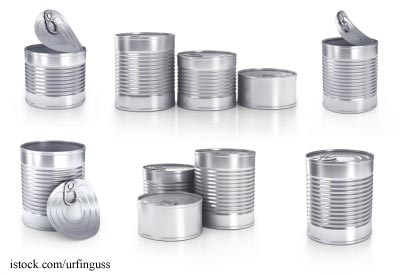A new study claims that exposure to Bisphenol A (BPA) from drinking canned beverages increases blood pressure. BPA is a chemical used to line metal cans and make plastic bottles. It has been associated with hypertension in earlier studies.
 This new study was a randomized crossover trial with adults age 60 hayers and older. The participants were given the same beverage in 2 glass bottles, 2 cans, or 1 can and 1 glass bottle at a time. Urinary BPA concentration, blood pressure, and heart rate variability were measured 2 hours after each beverage was consumed. Each participant visited the study site three times.
This new study was a randomized crossover trial with adults age 60 hayers and older. The participants were given the same beverage in 2 glass bottles, 2 cans, or 1 can and 1 glass bottle at a time. Urinary BPA concentration, blood pressure, and heart rate variability were measured 2 hours after each beverage was consumed. Each participant visited the study site three times.
Urinary BPA concentration increased after consuming canned beverages by more than 1600% compared to the concentration after drinking beverages from glass containers. Systolic blood pressure increased by about 4.5 mmHg after consuming 2 canned beverages compared with consuming 2 glass bottled beverages. That was a statistically significant different.
The study was published in the American Heart Association journal Hypertension and was conducted at Seoul National University in Korea.
The Center for Accountability in Science and the American Chemistry Council panned the report, saying that the study was very small and the findings were weak. Those organizations were also critical of the beverage choice, soy milk, which is “not representative of all canned beverages.” In addition, soy milk contains estrogenic substances, which may affect blood pressure.
Other studies have confirmed the new study’s findings and raised other concerns about BPA. A study by the NIH in 2007 found there was “some concern” about BPA’s effects on fetal development. A 2011 study found that BPA reduces testosterone levels in men. But the FDA states that “BPA is safe at the current levels occurring in foods. Based on FDA’s ongoing safety review of scientific evidence, the available information continues to support the safety of BPA for the currently approved uses in food containers and packaging.”




